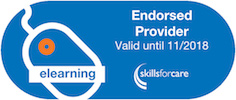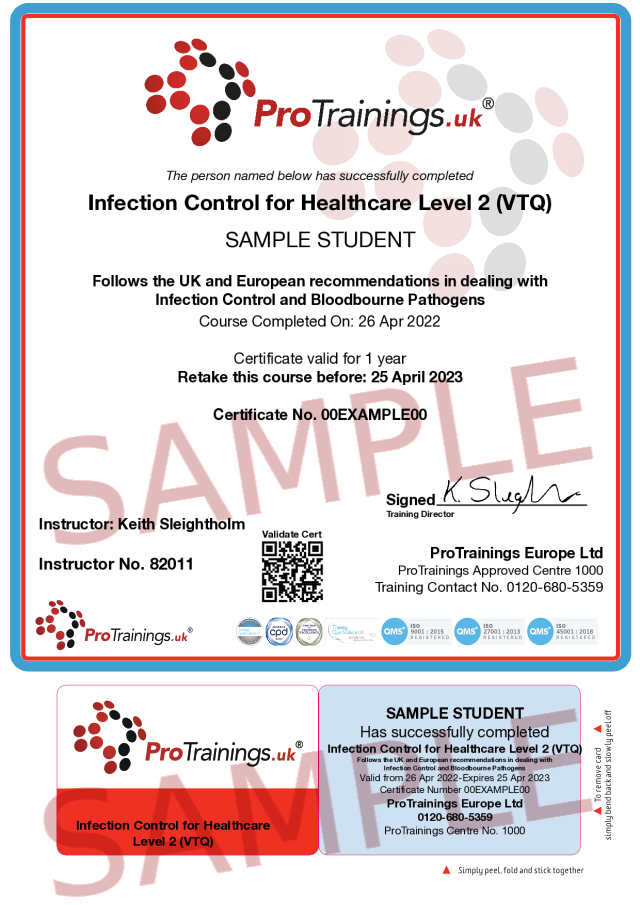Infection Control for Healthcare Level 2 (VTQ)


Infection Control for Healthcare Level 2 (VTQ) at a glance
- 1-year nationally recognised certificate
- 2 hours and 35 minutes of engaging video training
- Video access for 8 months
- Printable wall certificate
- CPD time credit conformation
- Free weekly video refresher
- Evidence Based Training certificate
We have been recognised as an endorsed provider from Skills for Care, earning the prestigious distinction as a Centre of Excellence within training and health & social care.
Infection Control Training is a mandated training program for any employee, self-employed person, or safety representative who may be exposed to blood or other body fluids. This course is available online or we can offer face-to-face training nationwide through our network of approved and monitored instructors.
This course is designed to meet the requirements and recommendations of the HSE, NHS and medical professionals. infection control training is required in other industries outside the medical world.
The course covers many different subjects from the types of infection, workplace practices, personal protective equipment (PPE) and other relevant subjects all in an easy to watch and understand video format.
If you require a classroom course, we can adapt this course to your requirements and add other courses like Basic Life Support for Healthcare and teach them both on the same day.
With all our courses, we endeavour to keep up to date and this course is no exception. Videos have been updated to include the guidelines with the latest updates with Coronavirus COVID 19. We will keep this course updated with the latest news on Coronavirus COVID 19 and you can watch the latest videos even after you have passed the course to keep up to date.
The content of this and all our courses has been independently certified as conforming to universally accepted Continuous Professional Development (CPD) guidelines and come with a Certified CPD Statement as well as a ProTrainings Certificate and for online courses an Evidence Based Learning statement.







